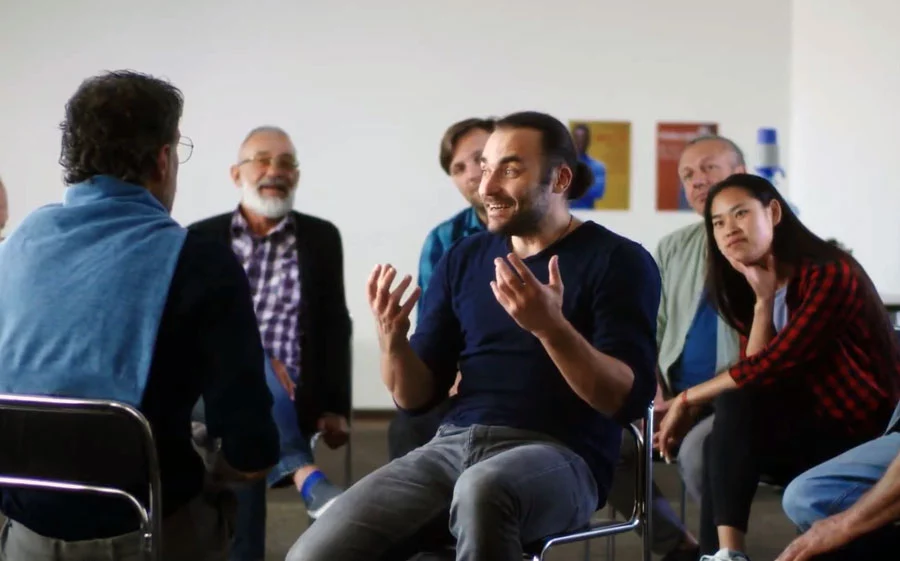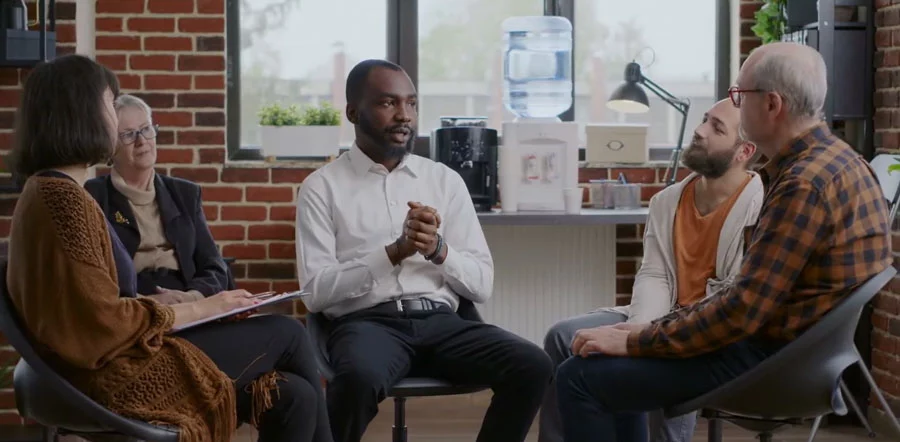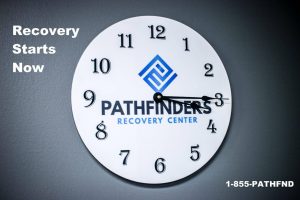Al-Anon is a fellowship of relatives and friends of alcoholics that was established in 1951. Sixteen years after her husband created Alcoholics Anonymous, Lois Wilson (often known as Lois W.) created Al-Anon. She founded the group after experiencing firsthand the challenges faced by those who care for a family member or friend with an alcohol use disorder.
Support for Al-Anon comes solely from member contributions. Even if the addict in your life hasn’t yet found sobriety, you may still find support and learn how to best assist them by attending a meeting. Al-Anon’s goal is to help its members feel less alone by showing them they aren’t facing their problems alone.
Keep reading to find out more about the steps involved in Al-Anon and what you can do to help both yourself and a loved one who is struggling with alcohol and/or drug use.
Addiction and Alcoholism as a Family Disease
Because of the devastating effects, alcoholism can have on both the alcoholic and their loved ones, Al-Anon approaches the problem as one that affects the entire family. Recuperating successfully requires a strong network of loved ones and friends.
Some loved ones may place the blame for their alcoholic relative’s drinking on themselves, or they may not comprehend why their relative isn’t making recovery a top priority. These topics are discussed at meetings, along with the concept of alcoholism as a genetic disease and its effects on family members.
While technically Al-Anon is centered only around those whose loved ones have issues with drinking and does not encompass drug use, in reality there is not a clear distinction for most Anon groups.
If your loved one tends more toward drug use, and your area has Nar-Anon meetings, these can be another helpful resource for support, while still firmly based on the twelve step philosophy.
What Happens at a Meeting?
Anyone who another person’s drinking or drug use has harmed is welcome to attend Al-Anon sessions. Al-Anon is there to support you if you are concerned about an alcoholic or an alcoholic’s lifestyle affecting you.
Due to uncertainty about the nature of the initial gathering, some potential attendees may be unwilling to show up. Here are a few things to keep in mind if you’re thinking about going to a meeting:
- Firstly, Al-Anon is a completely confidential organization.
- Every individual attending an Anon meeting has been directly or indirectly impacted by drinking or drug use by a loved one/
- It is recommended, but not needed that everyone stands out and shares their struggles.
- Various kinds of gatherings exist. It’s possible that some will be more useful to you than others.
- The fellowship as a whole, known as Al-Anon, has no religious affiliations. However, the basis is on a type of spiritual awakening or acceptance of a higher power being in control. There is certainly a primary spiritual aim regarding the 12-Step Program.
- The meetings are based on Al-Anon’s twelve steps.
Participants in Al-Anon sessions are encouraged to “take what you want and leave the rest.” Instead of lecturing attendees on what they should do, meetings become opportunities to reflect and commiserate on how best to remain healthy while dealing with a loved one’s drinking.
What Are the 12-Steps?

These are the steps, word-for-word, from the original and official 12-Steps of Al-Anon:
- “We admitted we were powerless over alcohol—that our lives had become unmanageable.” —You must learn that alcohol abuse is a disease that ran your life.
- “Came to believe that a Power greater than ourselves could restore us to sanity.” —Participants drive themselves to the breaking point trying to change something in a loved one’s personality. When you admit you’re powerless, your higher power will bring you back to sanity.
- “Made a decision to turn our will and our lives over to the care of God as we understood Him.” —You must learn to let go and accept in order to heal.
- “Made a searching and fearless moral inventory of ourselves.” —You must make a list of things you’ve done to harm family and friends. This is done through a deeply personal self-assessment.
- “Admitted to God, to ourselves, and to another human being the exact nature of our wrongs.” —Each member must dive into their memory bank and analyze every act of wrongdoing.
- “Were entirely ready to have God remove all these defects of character.” —This step is very important, as it is the full acceptance of the recovery process supported by a Higher Power.
- “Humbly asked Him to remove our shortcomings.” —This part of the 12 Steps helps members understand how they may have been controlling or judgmental toward an addict and how that is counterproductive.
- “Made a list of all persons we had harmed, and became willing to make amends to them all.” —Oftentimes, making amends starts with yourself. Many people blame themselves for their loved one’s addiction. They must be willing to forgive themselves and make amends. In the future, when wrong, promptly admitted mistakes and slipups lead to less damage.
- “Made direct amends to such people wherever possible, except when to do so would injure them or others.” —After you are willing to make amends, the next step is to take action.
- “Continued to take personal inventory and when we were wrong promptly admitted it.” —Going through the 12 Steps is a process that takes time. Although members have already made an inventory, slipping up is normal. Step 10 recognizes this is an ongoing process.
- “Sought through prayer and meditation to improve our conscious contact with God as we understood Him, praying only for knowledge of His will for us and the power to carry that out.” —This is a personal, spiritual step that encompasses acceptance and comfort amid the stress of recovery.
- “Having had a spiritual awakening as the result of these steps, we tried to carry this message to others, and to practice these principles in all our affairs.” —The last step is a realization that the member’s journey is not over. Members are then encouraged to support other members with what they’ve learned by passing their knowledge on during future alcoholics anonymous meetings.
Other Al Anon Groups
Additional Al Anon Groups exist that practice Al Anon’s twelve steps or focus on addiction treatment. Through these al anon meetings, family members and other individuals, such as the children of those going through alcohol abuse, may participate and maintain personal anonymity.
Meetings are also crafted for adolescents, known as Al-A-Teen, are al anon meetings for teenagers and young people to take personal inventory of where they stand in addiction treatment and gauge the exact nature of their alcohol abuse challenges. These additional al anon entities are a part of a broader family known as Al Anon Family Groups.
What can you expect from an al anon meeting? In the section below, you’ll find example topics of discussion during a normal al anon meeting.
All Our Affairs: Topics of Al Anon Meetings

Topic discussions are the norm in Al-Anon Family Group and standard Al-Anon sessions. This implies the meeting’s chairman will select a subject matter linked to their own personal experience coping with an alcoholic loved one. It is not uncommon for the chairman to solicit ideas for topics from the audience.
Participants in the meeting can then share their knowledge, courage, and optimism about the chosen topic.
The Reasons For and Causes of Alcoholism
Realizing that alcoholism is a disease helps shed light on the alcoholic’s repeated attempts to kick the habit, only to relapse a few days later. Learn more about it.
Dealing With Anger at an Alcoholic
You and your family members may receive conflicting messages on handling rage. Do certain family members get to let off steam, while you’re admonished to keep your cool? At Al-Anon, you learn that anger is a natural and normal emotion. It’s fine to feel rage; the important thing is to figure out how to channel it constructively.
Altering Perspectives on Alcohol
In the Al-Anon meeting’s opening statement, “So much depends on our own attitudes, and as we learn to set our issue in its real perspective, we discover it loses its ability to dominate our thoughts and lives.” Which mindset is ruling your daily activities?
Enabling Alcoholic Behaviors
It’s possible that your well-intentioned attempts to aid the alcoholic instead encourage the person to keep up their destructive patterns.
Confronting Uncertainty
The ideas discussed and practiced in Al-Anon Family Groups can be useful for adapting to the inevitable and, at times, dramatic shifts that occur in everyone’s lives. You may not be able to change the conditions much, but you can change your attitude about the problem.
Detachment with Compassion
It might be challenging to master the art of detachment. Do you want to be the one to step in and rescue the day when a person with alcohol use disorder has a crisis? This could be the last thing you should do if you want that individual to finally ask for assistance.
Unrealistic Expectations and Managing Them
When dealing with a loved one with an alcohol use issue, are your expectations too high? If you don’t learn to adapt your expectations to be more aligned with reality, you may end up feeling disappointed and frustrated.
Powerlessness Over Alcohol

You may have joined Al-Anon believing the entire time that there was something you could do to make the alcoholic realize there was a problem and seek help. The first step is realizing you can’t control your drinking.
Mind Your Own Business
In Al-Anon, members are reminded that they are not responsible for the drinking habits of their loved ones. Embarrassment and humiliation are not yours; they are theirs to bear because of their actions. It is not a reflection on your worth as a parent, friend, husband, or sponsor if they make “poor” decisions.
They should be allowed to learn from their own errors. You can only contribute effectively by speaking up and sharing your wisdom, fortitude, and optimism when the time is right.
Day by Day: The Only Way to Live
The tagline “one day at a time” may sound like just another overused adage, yet it has a lot of insight in its reminder to focus on the now rather than dwelling on the past or imagining the future.
Find Lasting Addiction Recovery at Best Rehabs In Arizona
If you are looking for a treatment center that can support your loved one in addition to getting help from a 12-Step Al Anon program, look no further than Best Rehabs In Arizonas in Colorado and Arizona.
Best Rehabs In Arizona takes a different approach to healing and believes that alcohol and other substance abuse issues are best treated through evidence-based avenues, the treatment of underlying mental health disorders, and a holistic healing environment.
Contact a member of our warm and welcoming Admissions team today to learn more about how we can help your loved one begin a lasting recovery journey of their own!



















 Within 6 to 12 hours, minor symptoms start to appear. These include muscle aches, excessive yawning, trouble sleeping, headaches, or even a fever. It’s around this time that most common opioid abusers give in and go back to their substance.
Within 6 to 12 hours, minor symptoms start to appear. These include muscle aches, excessive yawning, trouble sleeping, headaches, or even a fever. It’s around this time that most common opioid abusers give in and go back to their substance. Many people don’t realize that drug abuse affects their emotional stability. The effects of consistent drug abuse can numb the natural coping mechanisms we’re supposed to use. When patients quit taking those numbing opioids, they tend to struggle with coping with emotions again.
Many people don’t realize that drug abuse affects their emotional stability. The effects of consistent drug abuse can numb the natural coping mechanisms we’re supposed to use. When patients quit taking those numbing opioids, they tend to struggle with coping with emotions again. That regulation starts with a thorough exercise routine. Don’t worry – you don’t need to become a bodybuilder just to transition away from drug abuse. It is a good idea though, even if just to maintain some level of routine.
That regulation starts with a thorough exercise routine. Don’t worry – you don’t need to become a bodybuilder just to transition away from drug abuse. It is a good idea though, even if just to maintain some level of routine.

 The most rewarding times in our lives are when we can truly step out of ourselves. To show up for another person in a capacity that makes their life better in some way is incredible. Drug addicts like us have taken enough from this world during active addiction, and it is a phenomenal feeling to give something back. Also, surround yourself with people that bring positivity and love into your life. Negative influences can deeply affect your level of happiness, so we highly recommend surrounding yourself with people who share your goals and are willing to take actions with you toward generating real happiness; we do not do this thing called recovery alone!
The most rewarding times in our lives are when we can truly step out of ourselves. To show up for another person in a capacity that makes their life better in some way is incredible. Drug addicts like us have taken enough from this world during active addiction, and it is a phenomenal feeling to give something back. Also, surround yourself with people that bring positivity and love into your life. Negative influences can deeply affect your level of happiness, so we highly recommend surrounding yourself with people who share your goals and are willing to take actions with you toward generating real happiness; we do not do this thing called recovery alone!